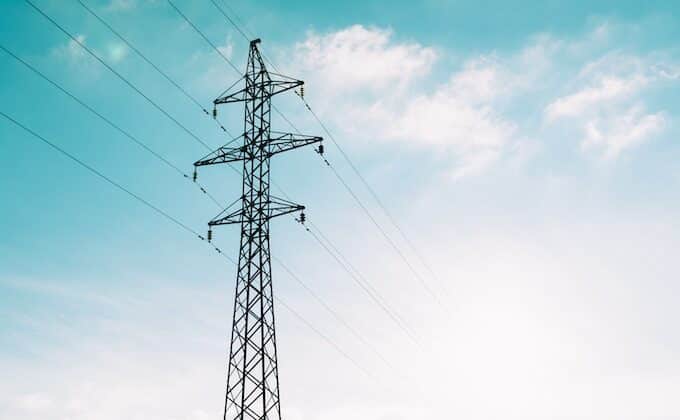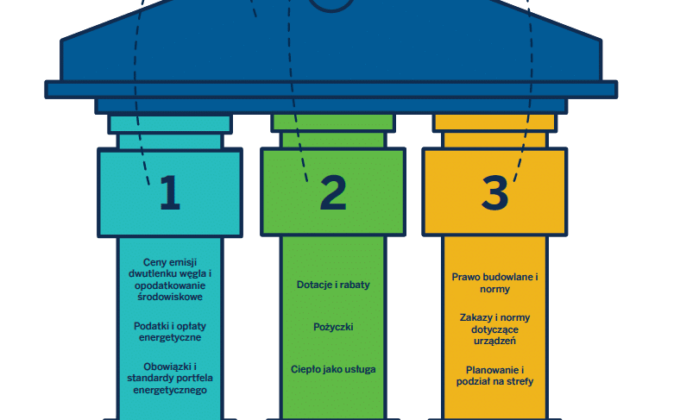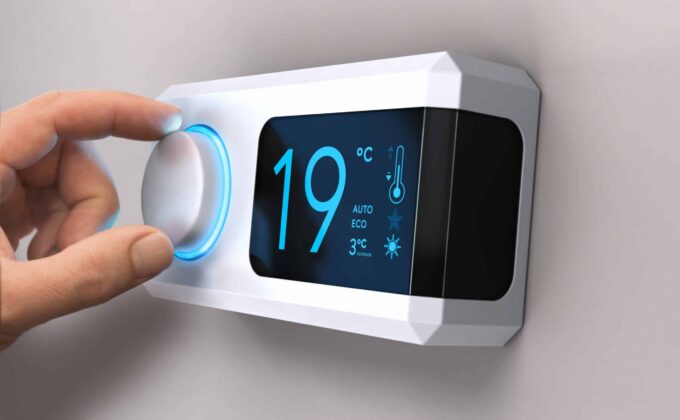
Knowledge Center
We believe that sharing our expertise and collaborations in clean energy policy is how real, effective change happens.
From reports and policy briefs, to webinars and podcasts—RAP advisors have built an extensive collection of resources providing in-depth analysis and practical solutions to today’s energy challenges.
Filter >>
Content Filter:
Fossil-fueled appliances in buildings are a significant source of emissions, not only of greenhouse gases but also pollutants such as nitrogen oxides (NOx), which are responsible for a variety of air and water quality and health problems. In a webinar… View Summary +
To meet decarbonisation goals, global renewable power capacity will need to more than triple by 2030, according to leading energy agencies. Centralised renewable generation will not deliver this level of change on its own, nor should it. Distributed energy resources… View Summary +

As part of the Fit for 55 legislative package, the European Commission proposed a recast of the Energy Performance of Buildings Directive in December 2021. The proposal introduces a new policy to boost renovation of existing buildings across the European… View Summary +

中国国家发展和改革委员会于2021年出台了一份重要的政策文件(《关于进一步完善分时电价机制的通知》),要求各省对几乎所有的用户都要设计和实施分时电价。这将极大地推进分时电价在中国的实施,并使中国成为少数几个尝试在全国范围内广泛实施分时电价的国家之一。… View Summary +
中国做出具有历史性意义的双碳目标承诺后,中共中央、国务院、国家发改委和国家能源局发布了“1+N”政策体系中的首要两个政策文件,为电力部门制定了顶层设计方案,提出了“加快建设新型电力系统”及“优化清洁能源发电”等要求。2021年以来,各行各业分领域的政策文件陆续出台,初步构成了“1+N”政策体系。本系列文章旨在聚焦电力行业改革,为细化政策指令提出建议,以望在近期(即“十四五规划”)内对该政策体系提供支持。这些建议既基于我们全球团队对世界其他地区电力行业中许多措施可行性的分析,也综合了我们对中国政策和制度的理解,包括与政府相关部门和合作伙伴数十年的讨论与合作。 本文为此系列第一篇,概述了我们对电力部门改革的各方面建议,具体涵盖如下领域: 实施“全国统一电力市场体系”的下一步工作; 实施透明的电力部门规划,支持转型期间系统可靠性; 解锁低成本方案以支持系统灵活性和可再生能源并网; 在电力行业改革工作中落实“节约优先”的承诺。 This paper is also available in English. View Summary +
In the United Kingdom, policymakers are considering the idea of converting households that currently use gas for heating to instead burn hydrogen. This idea is known to compare poorly, on energy system cost grounds, to widespread energy efficiency, electrification using… View Summary +

Pompy ciepła to jedna z kluczowych technologii na drodze transformacji energetycznej, już niedługo stanie się najważniejszą technologią dla dekarbonizacji ogrzewnictwa. Obecnie zdecydowana większość ciepła do gospodarstw domowych jest dostarczana przez paliwa kopalne. W celu promowania i zachęcania do instalowania pomp… View Summary +

Smt M. Guha Roy, IAS Secretary to the West Bengal Electricity Regulatory Commission Reference: WBERC/Regulation-74/22-23/3642 11 April 2023 The Regulatory Assistance Project is an independent global NGO advancing policy innovation and thought leadership within the energy community. Our mission is… View Summary +

2021年以来,能源规划、碳达峰行动方案、新型储能指导意见等多份政策文件中都强调了虚拟电厂的发展,北京、内蒙古、浙江等多地也将虚拟电厂写入其“十四五”能源发展规划。在中国的双碳目标下,发展虚拟电厂对于促进清洁能源消纳,实现电力系统安全运行等方面,具备重要意义。… View Summary +
在应对气候变化和能源危机背景下,绿色低碳转型是实现全球经济与能源可持续发展的必要路径。分布式能源因具有清洁、低碳、且离负荷中心较近等优点,是以新能源为主体的新型电力系统的重要组成部分。在过去15年中,中国分布式能源政策不断演化和发展。根据近期政策,在2020到2025年期间,现行的政策支持逐步取消,分布式能源将逐渐转向市场导向和竞争模式。因此,“十四五”期间是分布式能源发展由补贴驱动转为市场驱动的重要转折期。… View Summary +
近年来,随着煤电倒挂现象以及电力现货市场的快速发展,容量补偿机制已成为热门话题。睿博能源智库之前已探讨过稀缺电价相关问题,而本文与E3共同撰写,旨在简要介绍美国容量补偿机制的设计原则,并结合中国国情,提出在中国电力市场实施容量补偿机制的建议。这些建议包括:… View Summary +
La energía utilizada para la calefacción y refrigeración representa alrededor del 50% del consumo total de energía en el mundo. De esta cifra, casi la mitad se consume para calentar edificios. Y la mayor parte de la energía utilizada se… View Summary +
Europe is heavily reliant on fossil fuels in the heating sector. The EU has set itself a goal of deploying 30 million additional heat pumps by 2030. To advance the transition away from fossil fuels in the heating sector,… View Summary +
The government of the United Kingdom is currently consulting on whether it should mandate that all new gas boilers sold from 2025 be ‘hydrogen-ready’ — that is, they can potentially be converted to run on pure hydrogen in case… View Summary +

RAP developed a model rule for use by U.S. state and local air quality regulators to reduce nitrogen oxide (NOx) emissions from water heaters. This technical support document was published to assist regulators and staff in understanding and making… View Summary +

